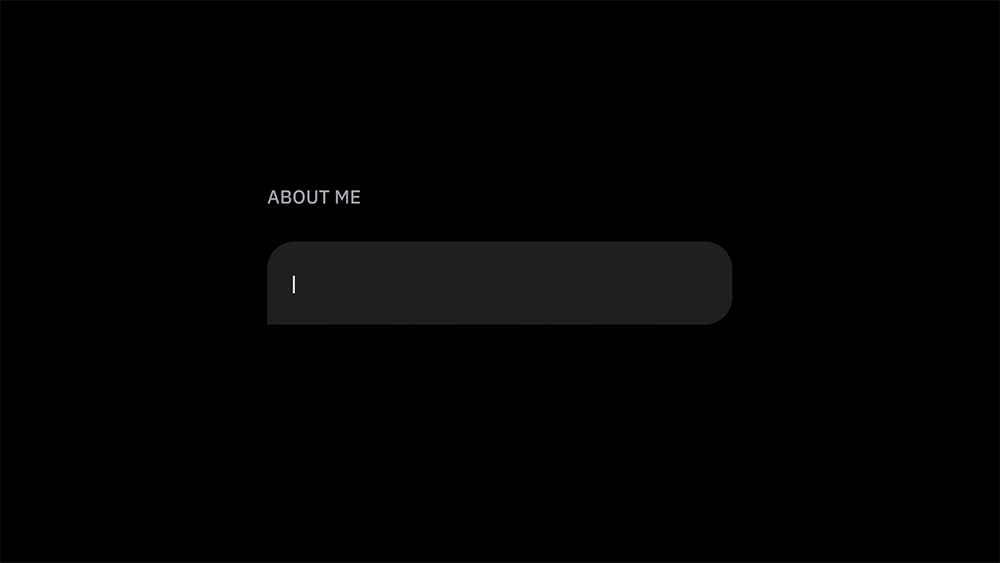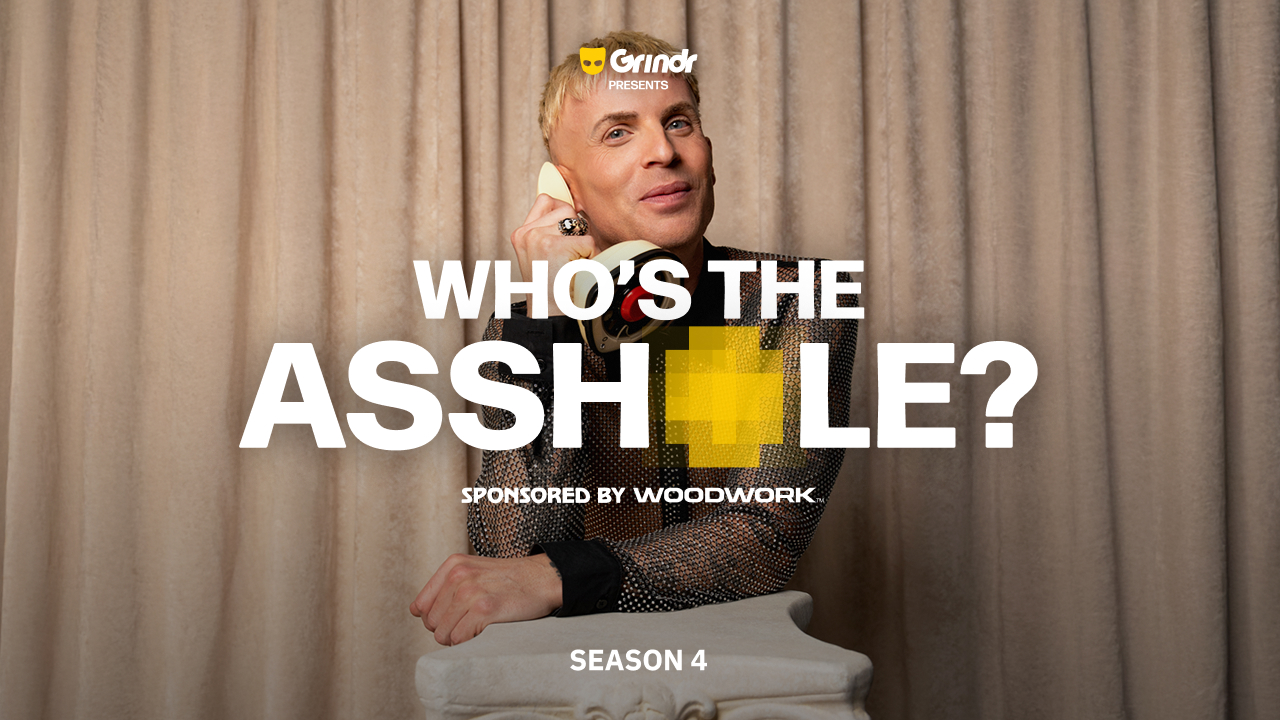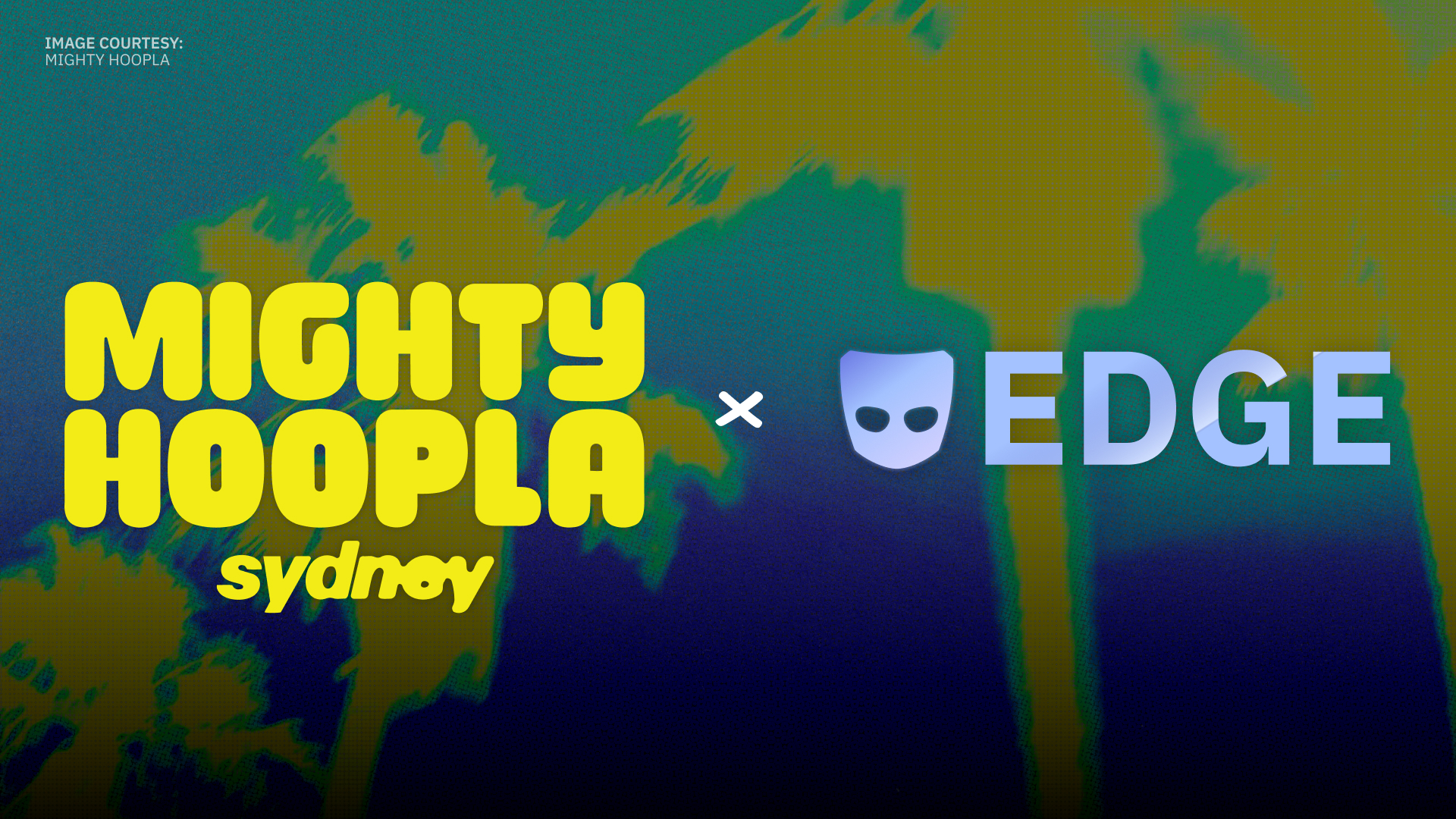What Does It Mean to Be Bicurious? 4 Ways to Explore Your Curiosities

Curiosity killed the cat. But for men who yearn for bussy and pussy, embracing your bicurious desires lets you prowl through nine lives full of sexy possibilities.
But curiosity isn’t all fun and games. Although sexuality exists on a spectrum, there’s a lot of pressure to pick a label. When everyone around you seems to know exactly where they fit on the flag, you might feel anxious to define yourself before you’re ready.
Everyone’s journey is different. There’s no single roadmap to self-discovery, and for some, a curious “phase” is an essential part of owning your sexuality. If you’re feeling curious, here’s Grindr’s guide to breaking through the stigmas, finding support, and navigating a fun and confusing aspect of your sexuality.
Bicurious meaning? More than just a phase
We live in a world obsessed with labels. And the queer community isn’t any different. We tend to pack our sexual orientations into neat boxes: lesbian, gay, pansexual, bisexual, and asexual (also, apparently, straight people exist?). Our gender identities are more fluid but still limited by terminology like male, female, transgender, gender neutral, nonbinary, agender, pangender, two-spirit, and third gender.
There’s nothing wrong with leaning into a single LGBTQ identity. No shade — we really love that for you! But, for many heterosexual and gay people, the term “bicurious” (sometimes spelled “bi-curious”) captures the complex ambiguity of sexual orientation. Many people identify as bicurious, meaning they have given themselves the freedom to figure out which romantic relationships or sexual experiences feel good despite what they always thought was “right.”
That could mean a 50-year-old gay man enjoying his first sexual experience with a woman or a 20-something heterosexual person pursuing a same-sex relationship. Whatever your age, gender identity, or sexual orientation, it’s never the wrong time to explore your sexual and emotional curiosities.
Swinging both ways: Bicurious vs. bisexual
The terms bisexual and bicurious are often thrown into the same big gay basket. But they’re as different as bears and otters. Here’s the tea:
Bicurious
It’s literally in the word, dolls. Here are four simple ways to round out the definition of bicurious.
- Just browsing: You shouldn’t treat potential partners like new shoes, but being bicurious presents an opportunity to try new options. Bicuriosity is about exploring, questioning, and seeking out new sexual and romantic experiences to see, well, if the shoe fits.
- Everyone’s hot: OK, maybe not literally. But bicurious people explore attractions and desires beyond their established sexual orientation. Curiosity doesn’t have to be defined strictly by romantic or sexual activity, either. You may fantasize about an encounter with people of various genders, consume media with bisexual or gay themes, or seek allyship and connection in new queer spaces.
- Maybe yes, maybe no: Following through on your bicurious urges often represents a pivotal moment in your sexual life. It may lead you to redefine your sexual orientation as gay or bisexual and pursue relationships with people of different genders. Or maybe it reaffirms your sexual orientation. That’s still a win!
- Q is for questioning: Bicuriosity emphasizes the Q in LGBTQ. It’s a moment to ask questions. “Do I enjoy this?” “What does this attraction mean?” “Who’s that hottie?”
Bisexual
Basically, you have an itch that any gender can scratch.
- You know what you like: Bisexual people have a clear understanding of their sexual identity. They acknowledge an attraction to more than one gender, whether emotional, romantic, or sexual.
- B is for balanced, baby: Although their tastes might evolve over time, bisexual people’s attraction to multiple genders is as consistent as a daddy with a thing for twinks. Even if you settle down with someone of the opposite sex, that doesn’t make you any less bi.
- Emotionally attached: Bicurious people may not be ready for a committed relationship outside their established lane. Confidently bisexual people are fully capable of forming deep, exclusive, emotional bonds or sexual relationships with people of more than one gender.
{{video-inline-cta}}
The stigmas of “wanting it both ways”
Bicurious and bisexual people are exposed to stigmas, just like lesbians, gay men, non-binary people, and other members of the queer community. Unfortunately, sometimes the call is coming from inside the house. That’s what happens when we put each other in boxes.
Here are a few harmful stereotypes about batting for both teams.
- Bicurious tourists: Heterosexual people exploring bicuriosity might be labeled as unwelcome “tourists” in queer spaces. This perception of heteroflexibility frames them as straight people who want to dip their toes in gay sexual relations while clinging to straight privileges.
- You’re a flight risk: Bisexual people are often stereotyped as being chronically unsatisfied with one gender. Beware of partners who worry they won’t ever be enough for a bisexual lover, creating mistrust and insecurity in the relationship.
- Straight-up biphobia: The fluidity of sexual orientation is still a concept many struggle with — even in the gay community. Bicuriosity can be an essential part of someone’s journey to understanding their sexuality, yet it’s frequently dismissed as an experiment or passing phase. These attitudes trivialize people’s experiences and contribute to the broader problem of bisexual erasure.
- Choose a side: Bicurious or bisexual people often face pressure to conform to a norm once they’ve partnered, whether it’s heterosexuality or homosexuality. This pressure ignores the reality that bisexuality is a valid sexual orientation with as much nuance as other queer identities.
Being yourself is hard. Just know that bicurious is part of the LGBTQ community, even if it’s not the final stop on your journey. Embrace yourself, and you’ll find people with similar experiences to support you.
4 things to remember if you feel bicurious
Bicurious exploration is equally exciting and nerve-wracking. For a smooth transition, remember these four things:
1. Honesty is the best policy
Be honest about your feelings when it comes time to date and hook up. You don’t have to spill your life story in the DMs, but let potential dates and sexual partners know where you are in your journey to self-discovery. Just like consent, honesty is sexy AF.
Remember to choose your words carefully and not expect every partner to be your tutor in all things sensual. After all, another human is being on the other side of your sexual exploration. Telling a potential sexual partner that you want to “experiment” is a major red flag — and for good reason. No one wants to feel like they’re disposable laboratory equipment.
Always choose respect, transparency, and honesty so your exploration isn’t another person’s heartache.
2. Age is just a number, honey
It’s never too late to try something new. Whether you’re fucking like a youngin’ or using a walker as a sex swing, there’s no wrong age to explore your sexuality.
3. Seek clarity from your community
Your sexuality is an enormous piece of your identity. Feeling unfulfilled, confused, or like you don’t fit in can take a toll on your mental health. Start your journey by connecting with other bicurious and bisexual people within the larger queer community. Likewise, you can gain valuable insights from sessions with a sex therapist or sex-oriented counselor and deep conversations with close friends. Look for connection and emotional support wherever you can.
4. Dip your toes and dive in
It’s never been easier to learn about the queer community. We’re loud and proud like never before. Exploring in-person gay spaces is a great way to test your bicuriosity, but there are plenty of other outlets, from drag queen podcasts to LGBTQ anime. You can also check out our Grindr guides on the best gay TV shows, gay movies, and gay books.
What can I do to support bicurious people?
A little TLC goes a long way. Empathy, active listening, and kindness are often the best responses to someone experiencing a major transition.
Think back to when you wrestled with your sexuality or came out of the closet. The best responses were probably the ones that made you feel heard, seen, and validated. If a bicurious friend shares their journey with you, thank them, show your support, and let them move at their own pace.
Ready to explore? Grindr’s got your backside!
Every explorer needs a sexy sherpa. If you’re looking for the Lewis to your Clark, you’ll find him on Grindr. Whether you’re bicurious, bisexual, or on a mission to figure your sexuality out, the Grindr app is your compass in a fabulous world.










.gif)
.png)


.jpg)


.jpg)








